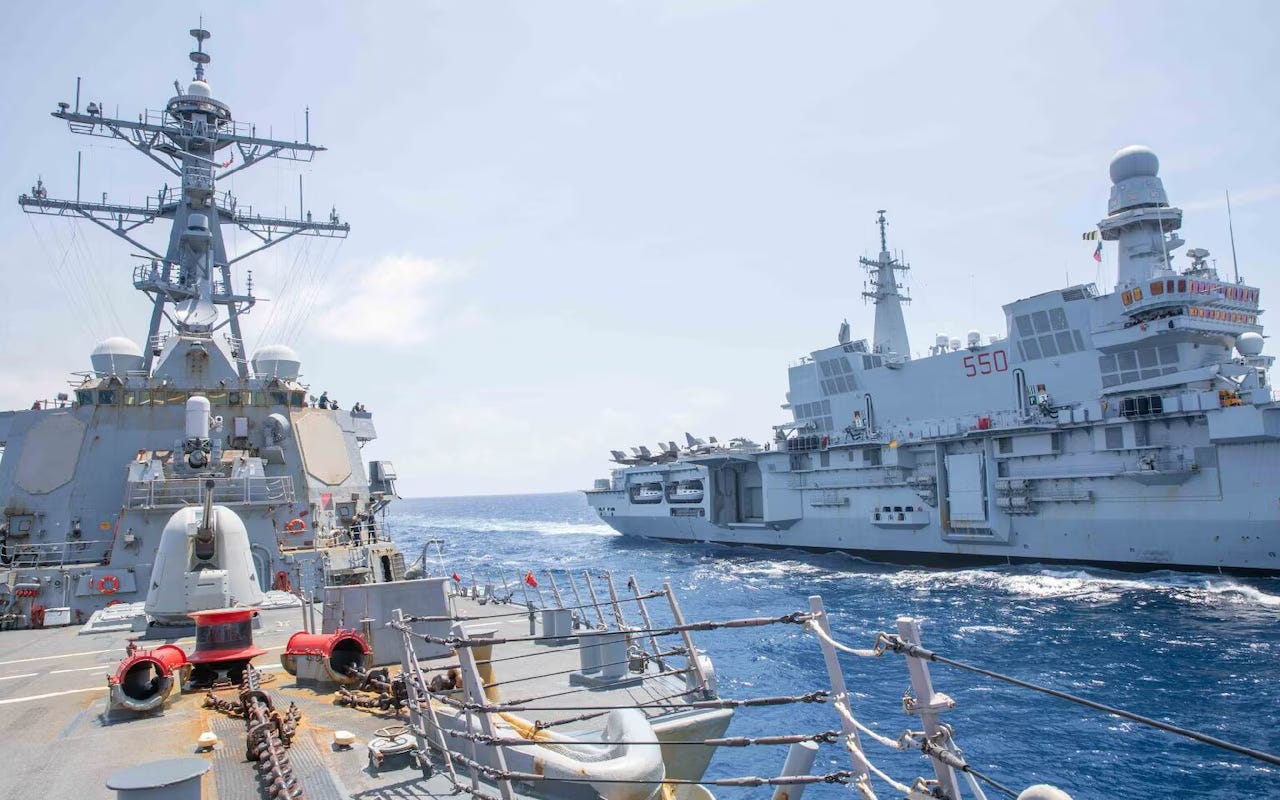U.S. Air Force Gears Up to Counter Rising Threat from China
Globally, the U.S. views China, rather than Russia, as its most potent threat. In addition to NATO, it is increasingly relying on alliances like the QUAD to ensure global security.
Abstract: The evolving geopolitical landscape, driven by China's military rise and the strengthening of alliances like the Quad, highlights the need for continued vigilance, modernization, and cooperation between the U.S. and its global partners. The future of Indo-Pacific security depends on it.

Rising Threat from China: U.S. Air Force Gears Up
China: A Present-Day Threat, Not Just a Future Concern
In a stark and urgent warning, U.S. Secretary of the Air Force, Frank Kendall, addressed the growing threat posed by China during his keynote speech at the Air & Space Forces Association convention held just outside Washington, D.C. “I’ve been closely watching the evolution of [China’s] military for 15 years. China is not a future threat; China is a threat today,” Kendall stated emphatically to a mixed audience of in-person and remote attendees, predominantly composed of Air and Space Force personnel.
Kendall highlighted China’s relentless investment in military capabilities, operational concepts, and organizational structures designed to undermine the U.S. and its allies’ ability to project power in the Western Pacific. These investments, he stressed, are aimed at targeting U.S. assets such as air bases and aircraft carriers, both land and sea-based.
"In addition, China continues to expand its nuclear forces and its ability to operate in cyberspace," Kendall continued, forecasting that these trends are not only present but likely to accelerate in the years ahead.
Chinese Military Expansion Raises Alarm
Kendall noted the growing concerns from countries in the Indo-Pacific region regarding China's military intentions and capabilities. Over the past 15 years of his visits to the region, Kendall has witnessed increasing alarm from nations observing China's military exercises, which are now larger and more sophisticated, aimed at simulating a potential invasion or blockade of Taiwan.
Though he emphasized that war is not imminent, Kendall warned that the likelihood of conflict in the Pacific is increasing. “I am not saying war in the Pacific is imminent or inevitable. It is not," Kendall clarified. "But I am saying that the likelihood is increasing and will continue to do so.”

U.S. Preparedness: Modernization is Key
Kendall’s speech wasn’t just a warning—it was also a call for action. He outlined the various initiatives undertaken by the U.S. Air and Space Forces to modernize and prepare for future conflicts. "To prevent conflict, we must be ready; [and] to prevail in conflict, we must be ready," Kendall said, reinforcing the need for operational imperatives to deter or respond to potential threats.
He also touched upon the importance of readiness in other parts of the world, referencing the Middle East and the successful thwarting of an Iranian attack on Israel in April, with assistance from the U.S. Air and Space Forces. “The efforts of our national security teams and our allies and partners across the world have been successful, so far, in limiting the scale of conflict," Kendall said.
Russia: A Weakened But Persistent Threat
Turning his attention to Europe, Kendall discussed the ongoing war in Ukraine. While Russia has been weakened by years of conflict, Kendall was clear that the threat it poses will remain, regardless of when or how the war concludes. However, he was optimistic about NATO's strengthened position, noting that the alliance has grown larger and more resilient, with many countries now meeting their defence spending commitments.
"We’re also deepening our partnerships with our traditional allies in Europe," Kendall added, pointing to agreements like the one with Norway to integrate the Joint Strike Missile onto F-35 fighter jets, significantly enhancing the maritime strike capabilities of the U.S. and its allies.
The Role of the Quad and India
In the broader context of global security, the role of the Quadrilateral Security Dialogue (QUAD)—a strategic alliance between the U.S., India, Japan, and Australia—is becoming increasingly significant. India, in particular, plays a complementary role to the U.S. Air Force in countering China's influence in the Indo-Pacific. With its strategic location, robust military capability, and shared interest in maintaining regional stability, India has emerged as a vital partner in the collective effort to deter Chinese aggression.
Kendall’s remarks underscore the importance of these partnerships, noting that building stronger ties with countries like India not only enhances the U.S. military’s operational effectiveness but also sends a clear message to China. The Quad’s collective military presence serves as both a deterrent and a reminder that any destabilizing actions in the region will be met with a unified response.
Eternal Vigilance
In concluding his address, Kendall pledged his continued commitment to ensuring that the U.S. Air Force is adequately resourced to meet the challenges of an increasingly complex global security environment. "My promise to you," he said, "is that I will spend whatever time I have left in public service working as hard as I can to get the Department of the Air Force the resources that it needs to be successful, and to successfully deter our adversaries—if needed—to achieve victory."
The U.S. Air Force continues to be a potent and evolving force, and while high-ranking, decorated officers may retire, the organisation itself remains resilient and flourishing. It not only ensures the defence of the United States but also plays a crucial role as a major force in maintaining global security and stability.
Photos: US Department of Defense

